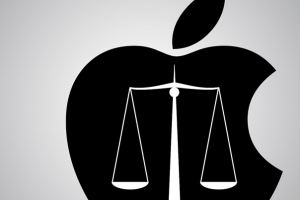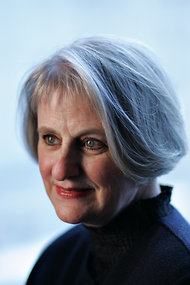 Judge Denise Cote has ruled on the Apple e-book case. And the verdict?
Judge Denise Cote has ruled on the Apple e-book case. And the verdict?
“The plaintiffs have shown that the publisher defendants conspired with each other to eliminate retail price competition in order to raise e-book prices, and that Apple played a central role in facilitating and executing that conspiracy,” Cote said.
“Without Apple’s orchestration of this conspiracy, it would not have succeeded as it did in the spring of 2010,” she added.

So Apple lost their case, which does raise the question of why they decided to fight it. When all the publishers settled, it would be fairly logical to assume that Apple would have followed.
We’re not yet done with trials, however. The judge has said the states and U.S. government are entitled to injunctive relief. Which raises the next question: In the end, what exactly is this going to cost Apple?
Not surprisingly, Apple hasn’t yet responded to requests for comments. And yet I doubt we’ll hear anything exciting when—or if—they do. I also expect to see an appeal of this decision; I suspect we’re still far from a resolution.
Anyone else feeling just a bit disappointed, and that this is all kind of anti-climactic?
































Apple actually did issue a statement, at least to TechCrunch. It’s the usual “we’ve done nothing wrong, will appeal, blah blah blah” you’d expect.
This isn’t going to be over until SCOTUS either hears the case (in next year’s session, perhaps?) or refuses, in which case Judge Cote’s decision stands. It will be interesting to see what Cote considers a reasonable sentence, though.
I thought I’d share with you my thoughts on the Apple Anti-trust decision by Judge Cote. I did read the whole thing (skimmed a few parts).
1) She puts forth such detail, that it is impossible to disagree with her conclusion that Apple was the instigator for the conspiracy.
2) That amount of detail will make it all but impossible to overturn on appeal. (Apple has no chance on a substantive appeal. The dollar amount of damages is a different issue.)
3) The amount of damages could be VERY significant.
4) Could it open the door to Apple’s agency pricing on Apps? WOW- that could really upset their applecart.
5) Could this cause significant damage to the iBookstore?
6) Although this appears to help Amazon, I’m not so sure/. I do believe that Department of Justice (DOJ) will keep a close eye on Amazon (whose monopoly on e-books will grow from this) as they will closely watch Amazon e-book pricing (i.e.- if they start raising prices!) Amazon will tread carefully help.
7) Apple, will REALLY walk on eggshells- and their arrogance/hubris has taken a huge hit (as will their pocketbook).
8) I don’t think this will hurt publishers all that much, as they have now abandoned agency pricing. but they will also watch themselves closely (or have their lawyers watch them) when their two year window expires on how they will price e-books.
Remember, back when Jobs announced the iPad- and that brief interview with the NY Times (was it Walt Mossberg?) in which he said that all prices will be the same? We talked about this at that time, and it’s potential impact. We were certainly right (as were others) that his remarks were a big deal. In fact, they were a VERY big deal.
I’ll probably do a longer post later today with my analysis of the decision.
For now: it’s somewhere between amusing and irritating how many people buy into the whole “evil Amazon is evilly eviling with its evil evil!” narrative of the publishers. When the DoJ investigated Amazon for predatory pricing and didn’t find any, it wasn’t a political thing—it was because there wasn’t any. Amazon follows the same strategy as retailers have since time immemorial: they price a fraction of their works as loss leaders, then make their money from all the other stuff the customers buy. It’s the same thing the big box stores do by advertising Black Friday doorbuster specials, like 50 inch TVs for $200 or some other insanely low below-cost price, to get people into their store to buy other things.
If I buy a $10 John Grisham that Amazon broke even on or even lost a buck or two, then I buy three more $6 to $8 Grisham backlist titles that Amazon makes at least a couple of bucks on each, Amazon comes out ahead. And there are many, many more backlist titles than frontlist. (Long tail is long.)
If Amazon were to price every book in its store, or even very many of its books, below cost across the board, that would be predatory pricing. But Amazon doesn’t do that, and never has. It’s just that the ones they do discount are the most visible ones, it leads people to assume they’re all that way.